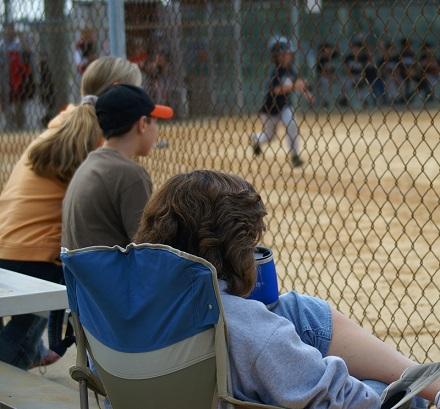

As a result, officials are bailing — resulting in the cancellation of several varsity and junior varsity games around the state.
“I am very concerned that if the behavior of the parents continue [sic], then next year, we will have to cancel more games, especially those games that start at 3:00 or 4:00,” Marquez wrote, according to the Albuquerque Journal. “The fans are brutal! The cussing and screaming, coupled with the threatening comments has to stop.”
She also included a message from an unnamed veteran official who resigned because of recent fan behavior.
“Soccer parents: you are absolutely 100 percent the reason that we have a critical refereeing shortage and games are being canceled left and right,” the official wrote. “And you are at least a part of the reason I’m done here. The most entitled among you are the ones that scream the loudest.”
Robert Sanchez, president of the Central New Mexico Soccer Officials Association, told the paper he has seen players trying to keep their parents quiet during games. “I honestly think these parents don’t think they’re doing anything wrong,” he said.
What’s happening in New Mexico is indicative of a national problem, according to Karissa Niehoff, executive director of the National Federation of State High School Associations.
“Inappropriate adult behavior at high school athletic events throughout the country has reached epidemic proportion,” she wrote in a sharp-tongued article posted on the NFHS website in September, calling parents and other adult fans “the biggest challenge facing high school sports today.”
She noted that almost 80 percent of all game officials quit after two years on the job, largely because of unruly parents.
In a follow-up piece posted a month later, Niehoff argued that“schools must adopt and enforce a strict, fan behavior policy. In soccer, a player receives a ‘yellow card’ as a first warning for unsportsmanlike conduct. If the action occurs again, the player is hit with a ‘red card’ and is ejected from the contest. Some schools have implemented a similar penalty structure for parents and other fans — not just at soccer games but all high school events. If the inappropriate behavior and verbal abuse of officials continues after one warning, the person is removed from the venue. There must be consequences for these offenders before we lose any more officials.”
The NFHS offers six guidelines for parents attending high school sporting events — suggestions that also can be implemented at any youth sports event by substituting “high school” with “team” or “community.” What follows are the guidelines, exactly as the federation presents them:
1. Act Your Age. You are, after all, an adult. Act in a way that makes your family and school proud.
2.Don’t Live Your Life Vicariously Through Your Children. High school sports are for them, not you. Your family’s reputation is not determined by how well your children perform on the field of play.
3. Let Your Children Talk to the Coach Instead of You Doing It for Them. High school athletes learn how to become more confident, independent and capable — but only when their parents don’t jump in and solve their problems for them.
4.Stay in Your Own Lane. No coaching or officiating from the sidelines. Your role is to be a responsible, supportive parent — not a coach or official.
5. Remember, Participating in a High School Sport Is Not About Getting a College Scholarship. According to the NCAA, only about two percent of all high school athletes are awarded a sports scholarship, and the total value of the scholarship is only about $18,000.
6.Make Sure Your Children Know You Love Watching Them Play. Do not critique your child’s performance on the car ride home. Participating in high school sports is about character development, learning and having fun — not winning and losing.

